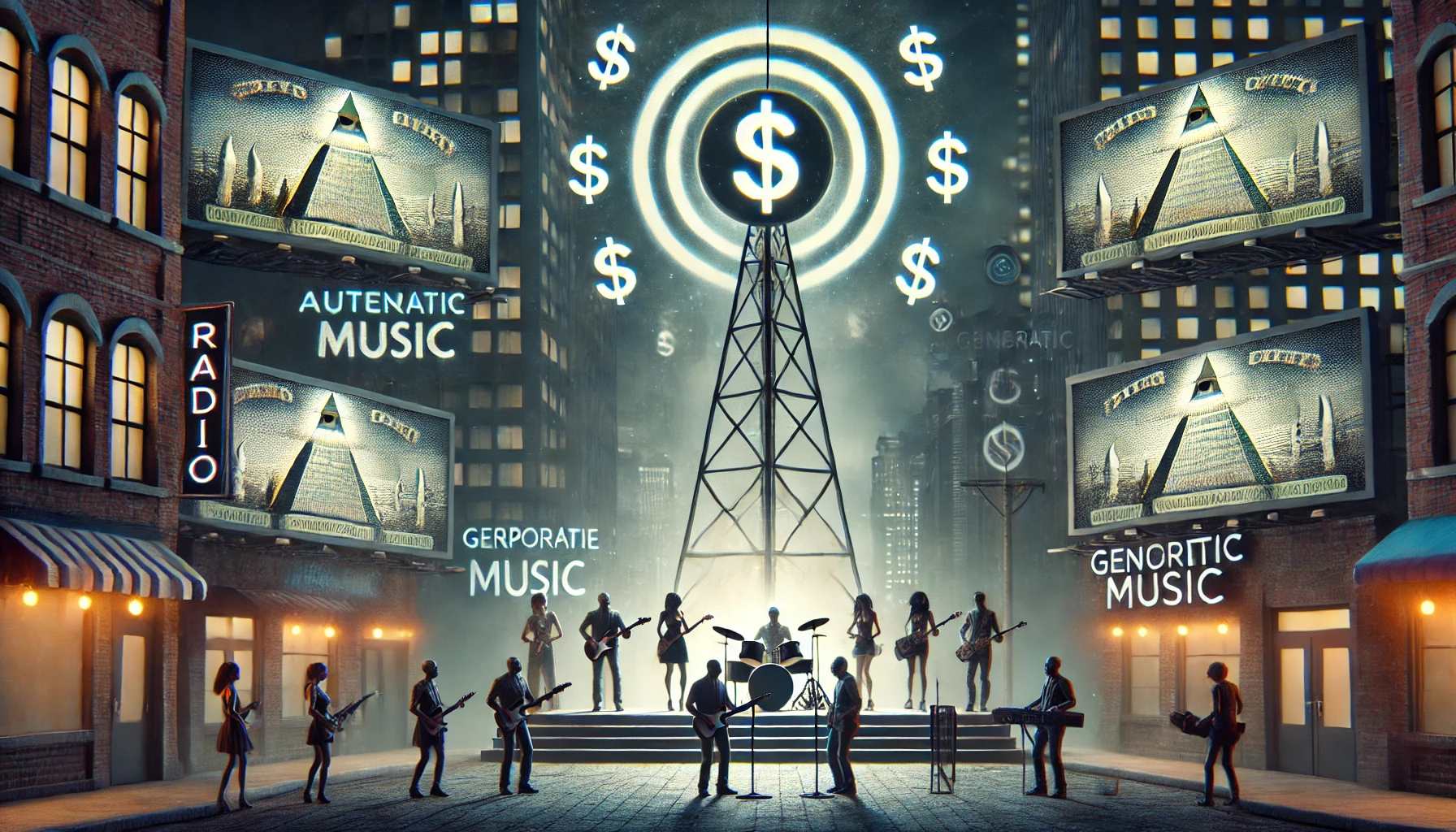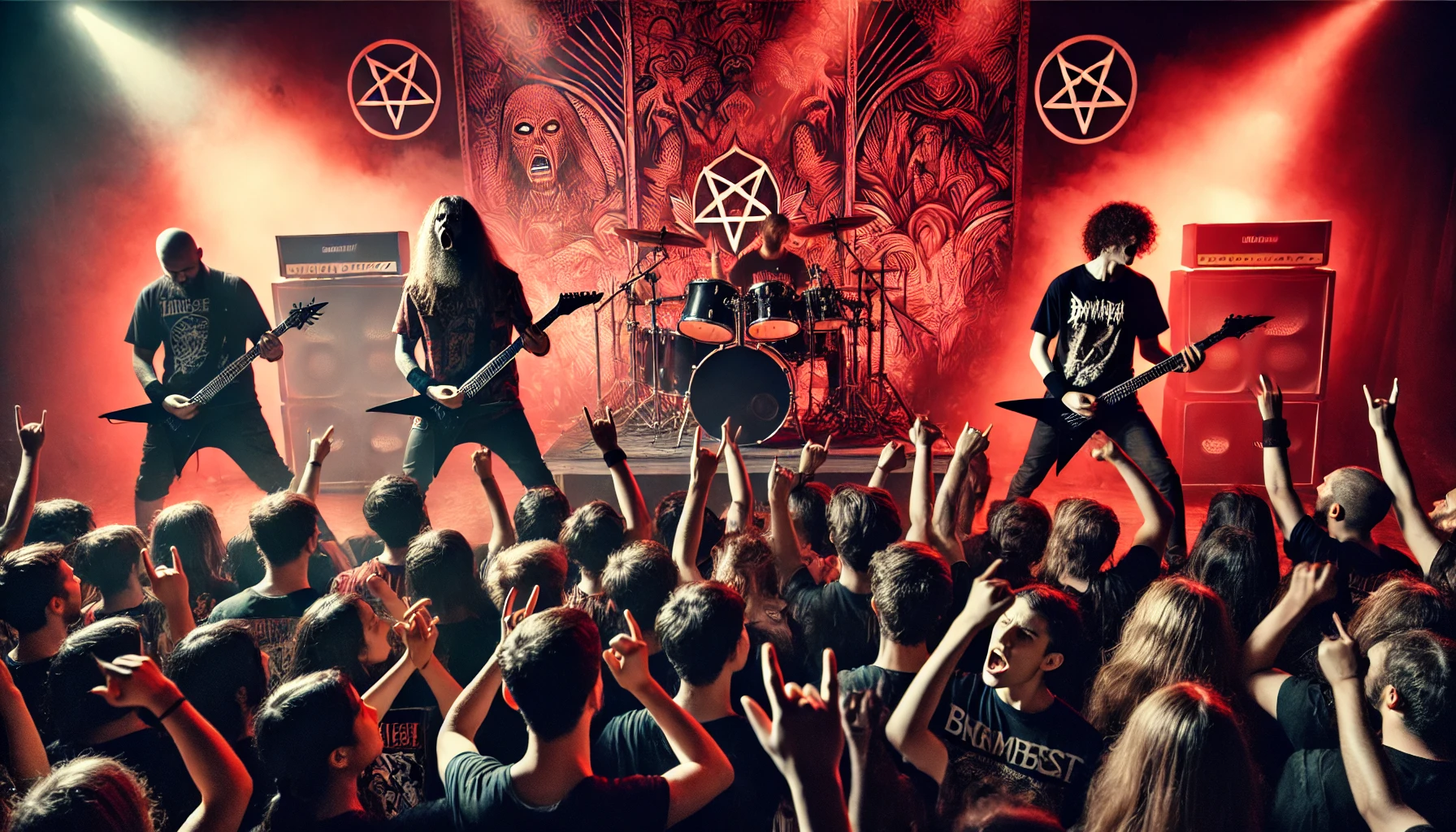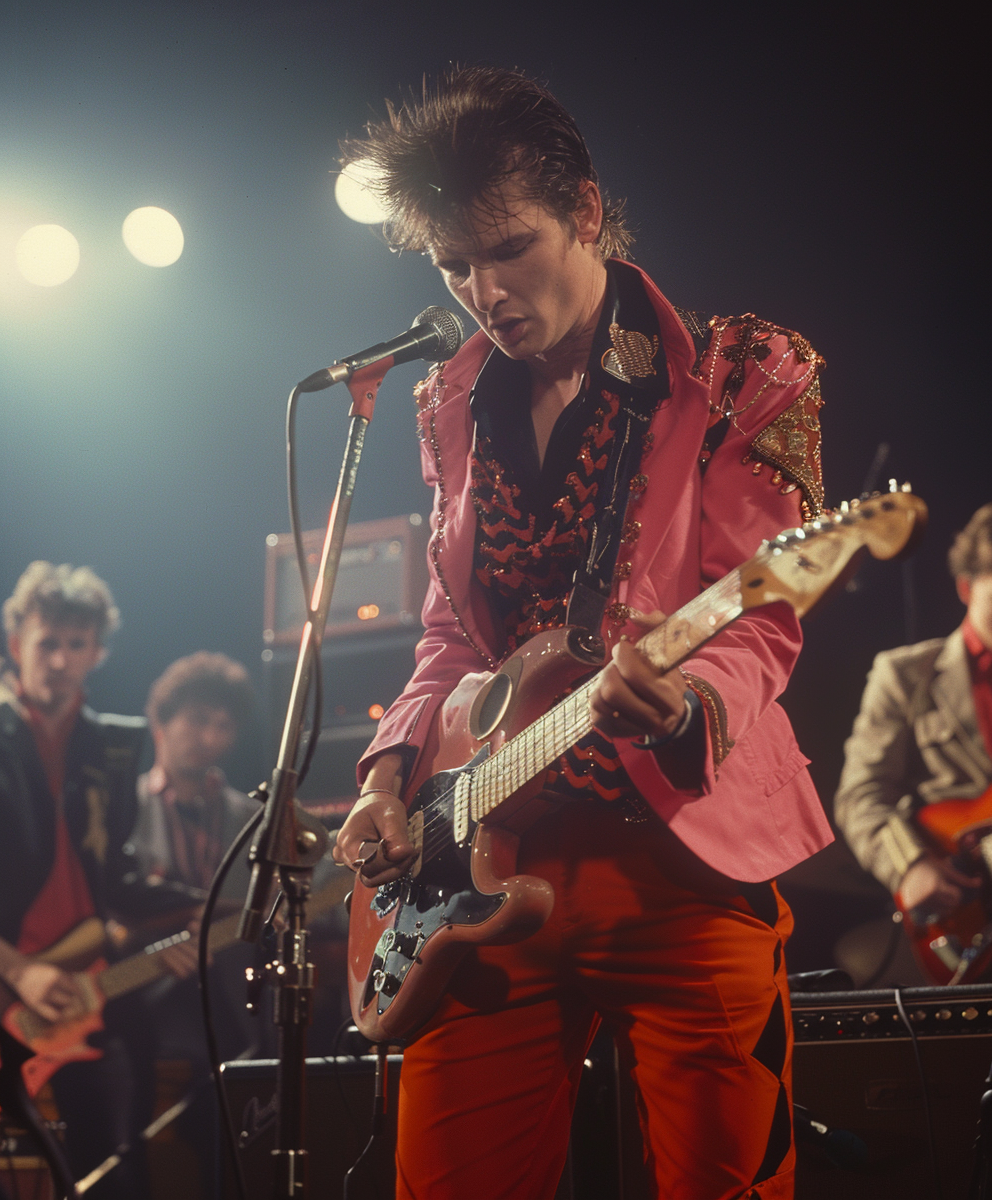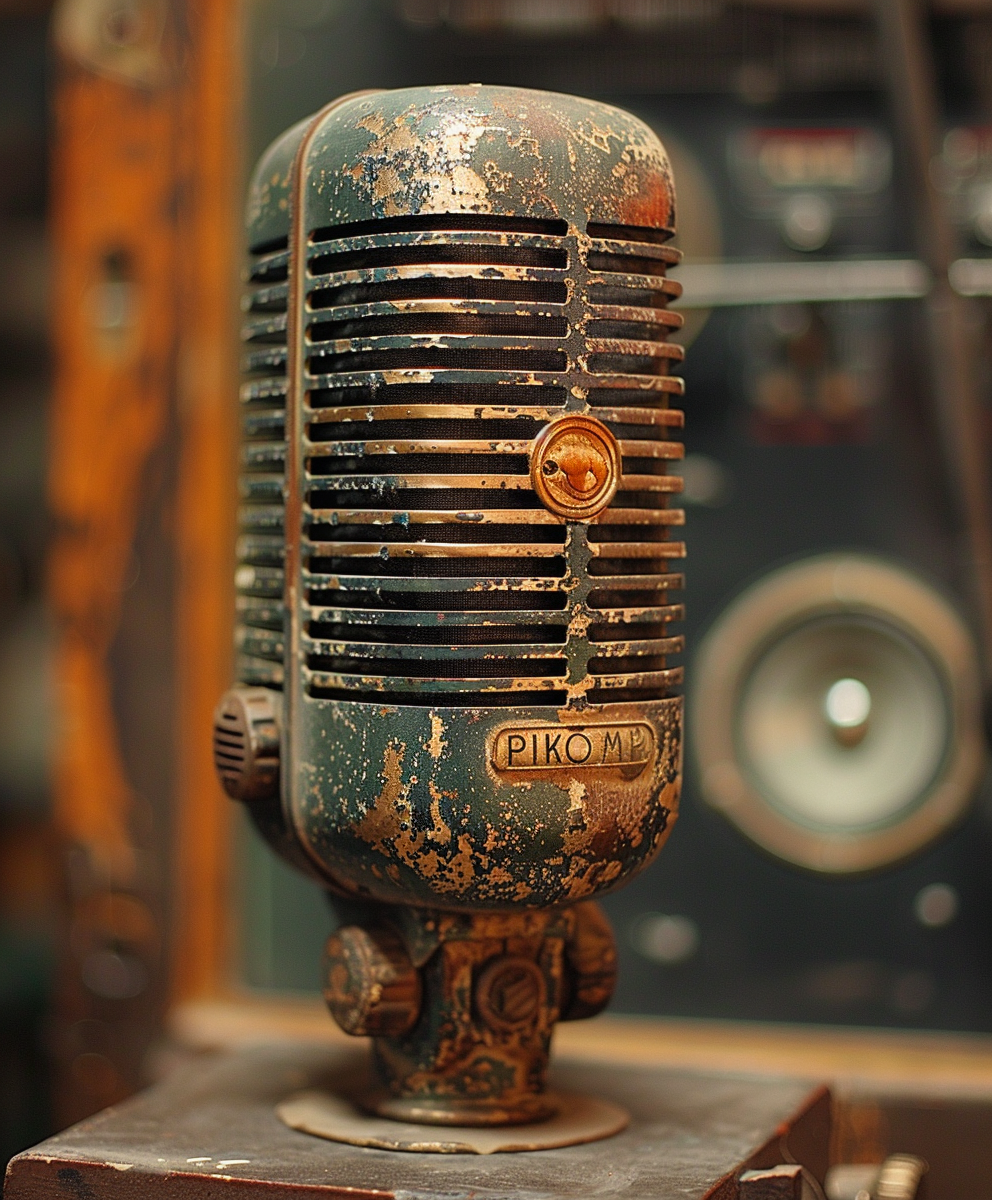In the golden days of radio, it was a beacon of cultural expression and musical diversity. DJs would spin records based on their tastes, regional preferences, and the genuine talent of the artists. From punk to metal, indie to goth, radio was a platform where all genres could coexist and thrive. However, those days seem like a distant memory. Now, corporate rock has killed the radio star, turning once-vibrant airwaves into a monotone drone of generic, uninspired tracks.

The Rise of Corporate Rock
The shift towards corporate-controlled radio didn’t happen overnight. It was a gradual takeover, fueled by mergers, acquisitions, and the ever-tightening grip of major record labels and conglomerates. These entities realized the immense power of radio to influence public taste and, more importantly, to drive sales. Thus, the primary goal of radio programming shifted from showcasing a diverse array of music to maximizing profit.
Corporate rock, a term that encapsulates the manufactured, formulaic sound engineered to appeal to the broadest audience possible, became the norm. The focus turned to creating hits that are easy to digest, catchy but ultimately disposable. This approach prioritizes marketability over artistry, resulting in a deluge of tracks that sound eerily similar and lack the soul that defined the greats of the past.

The Mechanisms of Control
So, how did corporate interests manage to hijack radio? The answer lies in the control of playlists and the centralization of decision-making. Radio stations used to have autonomy, with DJs playing a crucial role in curating the music. Today, most stations receive pre-determined playlists from corporate headquarters, leaving little room for individual expression or regional flavor.
These playlists are heavily influenced by the major labels, who have the resources to push their artists to the top. Payola, the practice of paying for airplay, may be illegal, but the reality is more nuanced. Labels invest heavily in marketing campaigns, promotions, and “consultants” who ensure their artists receive ample airtime. Independent artists and smaller labels simply cannot compete with these deep pockets, leading to a homogenized soundscape dominated by a few major players.

The Consequences for Music
The consequences of corporate domination of radio are dire for the music industry and listeners alike. Genuine talent and innovation are stifled as artists are pressured to conform to the corporate mold. Creativity takes a backseat to commercial viability, and many promising musicians either compromise their vision or languish in obscurity.
For listeners, the radio experience has become monotonous. The thrill of discovering new, exciting music is all but gone. Instead, we’re subjected to an endless loop of the same few songs, carefully selected to appeal to the lowest common denominator. The rich tapestry of genres and subcultures that once defined the musical landscape is being eroded, replaced by a bland uniformity.

The Undermining of Radio’s Cultural Role
Radio used to be more than just a medium for music; it was a cultural force. It provided a platform for voices that might otherwise go unheard and was a conduit for social and political commentary. From the counterculture movements of the 60s and 70s to the punk and metal revolutions of the 80s and 90s, radio played a pivotal role in shaping and reflecting societal changes.
However, as corporate interests took over, the focus shifted away from these roles. Controversial or non-mainstream viewpoints are less likely to receive airtime, as stations avoid anything that might jeopardize their advertising revenue. This censorship stifles the free exchange of ideas and reduces the diversity of voices on the airwaves.

The Battle for Authenticity
Despite the bleak picture, all is not lost. The digital age has provided new avenues for musicians and listeners to connect. Streaming services, social media platforms, and independent online radio stations offer alternatives to the corporate-dominated airwaves. These platforms have their challenges, but they also provide opportunities for genuine talent to shine and for listeners to discover music that resonates with them.
Artists and fans alike are pushing back against the homogenization of music. Independent labels, local scenes, and DIY movements continue to thrive, offering a counter-narrative to the corporate mainstream. While these efforts may seem like a drop in the ocean, they represent a crucial stand for artistic integrity and cultural diversity.

The Role of the Listener
As listeners, we have more power than we might realize. By seeking out and supporting independent artists, attending local shows, and sharing music that moves us, we can help foster a more diverse and vibrant musical landscape. Turning off the corporate radio and exploring alternative sources of music can lead to a richer, more fulfilling listening experience.
Supporting platforms and services that prioritize artistry over commercial interests is another way to combat the corporate takeover. Whether it’s subscribing to a streaming service that pays artists fairly, buying music directly from bands, or simply spreading the word about your favorite underground acts, every little bit helps.

Conclusion, Corporate Rock Killed the Radio Star
That is all about Corporate Rock Killed the Radio Star. The takeover of radio by corporate interests has undoubtedly stifled creativity and diversity in music. The once-vibrant airwaves are now filled with generic tracks engineered for mass appeal rather than artistic merit. However, the spirit of authentic, groundbreaking music is far from dead. It’s up to us, the listeners, to seek out and support the true gems buried under the corporate noise.
By embracing the digital tools at our disposal, attending live shows, and actively supporting independent artists, we can help keep the flame of musical diversity alive. Let’s not let corporate rock kill the radio star entirely. The power to revive the magic of radio and the richness of musical expression lies in our hands.
For more insights and to stay connected with my journey through the world of metal and goth, visit my home page. Connect with me on all my social media platforms through this link. Keep the spirit of real music alive!




